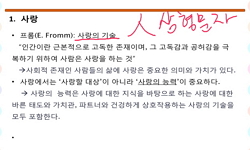본 연구에서는 초등학교 아동들이 지각한 부모의 심리통제와 자아존중감의 관계를 알아보고, 부모의 심리통제가 자아존중감에 영향을 미치는 과정에서 부적응적 자기지향 완벽주의가 매개...
http://chineseinput.net/에서 pinyin(병음)방식으로 중국어를 변환할 수 있습니다.
변환된 중국어를 복사하여 사용하시면 됩니다.
- 中文 을 입력하시려면 zhongwen을 입력하시고 space를누르시면됩니다.
- 北京 을 입력하시려면 beijing을 입력하시고 space를 누르시면 됩니다.

초등학교 아동들이 지각한 부모의 심리통제와 자아존중감의 관계: 부적응적 자기지향 완벽주의의 매개효과 = he Relationship between Perceived Parental Psychological Control and Self-Esteem in Elementary School Children: The Mediating Effects of Maladaptive Self-Oriented Perfectionism
한글로보기https://www.riss.kr/link?id=A104113271
- 저자
- 발행기관
- 학술지명
- 권호사항
-
발행연도
2012
-
작성언어
Korean
- 주제어
-
등재정보
KCI등재
-
자료형태
학술저널
-
수록면
157-174(18쪽)
-
KCI 피인용횟수
19
- DOI식별코드
- 제공처
- 소장기관
-
0
상세조회 -
0
다운로드
부가정보
국문 초록 (Abstract)
본 연구에서는 초등학교 아동들이 지각한 부모의 심리통제와 자아존중감의 관계를 알아보고, 부모의 심리통제가 자아존중감에 영향을 미치는 과정에서 부적응적 자기지향 완벽주의가 매개역할을 하는지를 알아보았다. 대구․경북지역에 거주하고 있는 초등학교 5학년과 6학년 아동 423명이 참여하여 부와 모의 심리통제, 부적응적 자기지향 완벽주의와 네 영역의 자아존중감-일반적 자아존중감, 사회적 자아존중감, 가족 자아존중감과 학교 자아존중감-을 평가하였다. 아동들이 부와 모의 심리통제를 높게 지각할수록 낮은 자아존중감과 높은 부적응적 자기지향 완벽주의를 나타내었고, 부적응적 자기지향 완벽주의가 높을수록 낮은 자아존중감을 나타내었다. 회귀분석과 매개효과분석 결과, 부와 모의 심리통제는 자아존중감의 하위 영역 가운데 특히 학교 자아존중감에 크게 영향을 미쳤으며, 이 과정에서 아동의 부적응적 자기지향 완벽주의가 부분 매개 역할을 하는 것으로 나타났다. 따라서 부모의 심리통제는 아동들의 건강한 심리적 발달을 돕기 위해서 지양되어야 할 양육방식으로 시사된다.
다국어 초록 (Multilingual Abstract)
This study aims to investigate the relationship between perceived parental psychological control and self- esteem, as well as to examine the mediating role of maladaptive self-oriented perfectionism, in elementary school children. The participants wer...
This study aims to investigate the relationship between perceived parental psychological control and self- esteem, as well as to examine the mediating role of maladaptive self-oriented perfectionism, in elementary school children. The participants were 423 fifth- and sixth-grade children in the Daegu and Kyungpook areas of Korea. Children evaluated their mother's and father's psychological control; maladaptive self- oriented perfectionism; and self-esteem in four areas-general, social, family and school. Children tended to display lower self-esteem and higher maladaptive self-oriented perfectionism when they perceived parental psychological control to be high. Those exhibiting high maladaptive self-oriented perfectionism also tended to display lower self-esteem. Maladaptive self-oriented perfectionism partially mediated the relationship between perceived parental psychological control and school self-esteem. These results suggested that high parental psychological control is a poor parenting style for furthering children's healthy psychological development.
참고문헌 (Reference)
1 신지은, "학업우수 청소년의 자기-지향적 완벽주의와 실패 후 정서: 목표지향성의 매개효과" 한국심리학회 29 (29): 911-933, 2010
2 김희영, "어머니의 완벽주의와 심리적 통제가 남, 여 아동의 완벽주의 및 우울에 미치는 영향: 경로분석 모형" 한국심리학회 산하 한국발달심리학회 21 (21): 115-131, 2008
3 도현심, "어머니의 양육행동 및또래 경험과 아동의 자아존중감 간의 관계" 19 (19): 19-33, 1998
4 전숙영, "어머니의 심리통제 및 아동의 행동적 자율성과 자기 통제력이 아동의 문제행동에 미치는 영향" 한국가정관리학회 25 (25): 169-180, 2007
5 이재연, "아동의 완벽주의 성향 및 스트레스 대처행동과 분노표현과의 관계" 숙명여자대학교 대학원 2005
6 김경미, "부모의 양육행동, 남녀 아동의 완벽주의 및 성취동기간의 관계" 한국아동학회 31 (31): 209-227, 2010
7 이은경, "부모의 심리적 통제가 청소년의 우울성향 및 우울과 자아존중감에 미치는 영향" 한국아동학회 31 (31): 87-106, 2010
8 셰퍼, D. R., "발달심리학" 시그마프레스 2005
9 최보가, "「자아존중감 척도」개발에 관한 연구(Ⅰ)" 31 (31): 41-54, 1993
10 Barber, B. K., "Violating the self: Parental psychological control of children and adolescents, In Intrusive parenting: How psychological control affects children and adolescents" APA 15-52, 2002
1 신지은, "학업우수 청소년의 자기-지향적 완벽주의와 실패 후 정서: 목표지향성의 매개효과" 한국심리학회 29 (29): 911-933, 2010
2 김희영, "어머니의 완벽주의와 심리적 통제가 남, 여 아동의 완벽주의 및 우울에 미치는 영향: 경로분석 모형" 한국심리학회 산하 한국발달심리학회 21 (21): 115-131, 2008
3 도현심, "어머니의 양육행동 및또래 경험과 아동의 자아존중감 간의 관계" 19 (19): 19-33, 1998
4 전숙영, "어머니의 심리통제 및 아동의 행동적 자율성과 자기 통제력이 아동의 문제행동에 미치는 영향" 한국가정관리학회 25 (25): 169-180, 2007
5 이재연, "아동의 완벽주의 성향 및 스트레스 대처행동과 분노표현과의 관계" 숙명여자대학교 대학원 2005
6 김경미, "부모의 양육행동, 남녀 아동의 완벽주의 및 성취동기간의 관계" 한국아동학회 31 (31): 209-227, 2010
7 이은경, "부모의 심리적 통제가 청소년의 우울성향 및 우울과 자아존중감에 미치는 영향" 한국아동학회 31 (31): 87-106, 2010
8 셰퍼, D. R., "발달심리학" 시그마프레스 2005
9 최보가, "「자아존중감 척도」개발에 관한 연구(Ⅰ)" 31 (31): 41-54, 1993
10 Barber, B. K., "Violating the self: Parental psychological control of children and adolescents, In Intrusive parenting: How psychological control affects children and adolescents" APA 15-52, 2002
11 Harter, S., "The perceived competence scale for children" 53 (53): 87-97, 1982
12 Baron, R. M., "The moderator-mediator variable distinction in social psychological research: Conceptual, strategic, and statistical considerations" 51 (51): 1173-1182, 1986
13 Soenens, B., "The intergenerational transmission of perfectionism: Parent's psychological control as an intervening variable" 19 (19): 358-366, 2005
14 Bean, R. A., "The impact of parental support, behavioral control, and psychological control on the academic achievement and self-esteem of African American and European American Adolescents" 18 (18): 523-541, 2003
15 Frost, R. O., "The dimensions of perfectionism" 14 (14): 449-468, 1990
16 Blatt, S. J., "The destructiveness of perfectionism: Implications for the treatment of depression" 50 (50): 1003-1020, 1995
17 Flett, G. L., "The child and adolescent perfectionism scale: Development, validation, and association with adjustment" 2000
18 Stoeber, J., "The assessment of self-oriented and socially prescribed perfectionism: Subscales make a difference" 92 (92): 577-585, 2010
19 Coopersmith, S., "The antecedents of self-esteem" W. H. Freeman 1967
20 Barber, B. K., "Reintroducing parental psychological control, In Intrusive parenting: How psychological control affects children and adolescents" APA 3-13, 2002
21 Hamachek. D. E., "Pschodynamics of normal and neurotic perfectionism" 15 (15): 27-33, 1978
22 Campbell, J. D., "Perfectionistic self-beliefs: Their relation to personality and goal pursuit, In Perfectionism: Theory, research, and treatment" APA 181-198, 2002
23 Ashby, J. S., "Perfectionism, dysfunctional attitudes, and self-esteem: A structural equations analysis" 80 (80): 197-203, 2002
24 Hewitt, P. L., "Perfectionism in the self and social contexts: Conceptualization, assessment, and association with psychopathology" 60 (60): 456-470, 1991
25 Shafran, R., "Perfectionism and psychopathology: A review of research and treatment" 21 (21): 879-906, 2001
26 Litovsky, V. G., "Perceptions of child rearing and self-concept development during the early adolescent years" 14 (14): 373-387, 1985
27 Shek, D. T. L., "Perceived parental control and parent-child relational qualities in early adolescents in Hong Kong: Parent gender, child gender and grade differences" 58 (58): 666-681, 2008
28 Lamborn, S. D., "Patterns of competence and adjustment among adolescents from authoritative, authoritarian, indulgent, and neglectful families" 62 (62): 1049-1065, 1991
29 Conger, K. J., "Parents, siblings, psychological control, and adolescent adjustment" 12 (12): 113-138, 1997
30 Barber, B. K., "Parental psychological control: Revisiting a neglected construct" 67 (67): 3296-3319, 1996
31 Isberg, R. S., "Parental contexts of adolescent self-esteem: A developmental perspective" 18 (18): 1-23, 1989
32 Gecas, V., "Parental behavior and adolescent self-esteem" 48 (48): 37-46, 1986
33 Soenens, B., "Maladaptive perfectionistic self-representations: The mediational link between psychological control and adjustment" 38 (38): 487-498, 2005
34 Barber, B. K., "Expanding the study and understanding of psychological control, In Intrusive parenting: How psychological control affects children and adolescents" APA 263-289, 2002
35 Sobel, M. E., "Asymptotic confidence intervals for indirect effects in structural equation models" 13 : 290-312, 1982
36 Shek, D. T. L., "A longitudinal study of perceived parental psychological control and psychological well-being in Chinese adolescents in Hong Kong" 63 (63): 1-22, 2007
동일학술지(권/호) 다른 논문
-
사회기술 향상 프로그램이 결손가정 청소년의 심리적 안녕 및 대인관계에 미치는 영향
- 한국심리학회산하학교심리학회
- 정태연
- 2012
- KCI등재
-
- 한국심리학회산하학교심리학회
- 장미경
- 2012
- KCI등재
-
- 한국심리학회산하학교심리학회
- 임수진
- 2012
- KCI등재
-
청소년 성격평가질문지(PAI-A) 긍정왜곡 지표의 효율성
- 한국심리학회산하학교심리학회
- 박은영
- 2012
- KCI등재
분석정보
인용정보 인용지수 설명보기
학술지 이력
| 연월일 | 이력구분 | 이력상세 | 등재구분 |
|---|---|---|---|
| 2026 | 평가예정 | 재인증평가 신청대상 (재인증) | |
| 2020-01-01 | 평가 | 등재학술지 유지 (재인증) |  |
| 2017-01-01 | 평가 | 등재학술지 유지 (계속평가) |  |
| 2014-04-17 | 학회명변경 | 영문명 : Korean Psychological Association: School -> The Korean Journal of School Psychology |  |
| 2013-01-01 | 평가 | 등재학술지 유지 (등재유지) |  |
| 2010-01-01 | 평가 | 등재학술지 선정 (등재후보2차) |  |
| 2009-01-01 | 평가 | 등재후보 1차 PASS (등재후보1차) |  |
| 2007-01-01 | 평가 | 등재후보학술지 선정 (신규평가) |  |
학술지 인용정보
| 기준연도 | WOS-KCI 통합IF(2년) | KCIF(2년) | KCIF(3년) |
|---|---|---|---|
| 2016 | 1.89 | 1.89 | 1.81 |
| KCIF(4년) | KCIF(5년) | 중심성지수(3년) | 즉시성지수 |
| 2.06 | 2 | 2.43 | 0.33 |




 KCI
KCI





